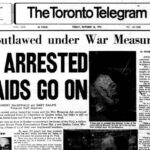This year marked the 20th anniversary of 9/11, a seminal moment in the decline of US superpower unipolarity. The Sept.11 attacks led immediately to the invasion of Afghanistan and the toppling of the Taliban. In late October 2001, US Congress ratified the USA PATRIOT Act. By President George W. Bush’s January 2002 “Axis of Evil” address at the State of the Union, it was clear that his administration was extending the logic of retaliation against Afghanistan to preventive war against Iraq — the metastasis of the Global War on Terror.
By 2005, the US was in a self-inflicted quagmire, from which it only extricated itself with the 2011 Iraq troop withdrawal. The US ultimately fared no better in the “good war” in Afghanistan, exiting in humiliation and amid a humanitarian catastrophe in August 2021.
This two-decade strategic blunder in Afghanistan — and the attention from policymakers it absorbed — coincided with growing economic inequality and precarity in the US, a massive financial crisis, social upheaval, and the growth of novel political alignments and radical platforms, and a catastrophic public health crisis. It also coincided with the mostly unchecked rise of a strategic competitor, China.
Not only does 2021 mark the 20th anniversary of the Sept. 11 attacks and the beginning of American superpower decline, but it also marks the 30th anniversary of the end of the Soviet Union, which collapsed on Dec. 26, 1991. I will not be the first to note that the fall of the Soviet Union was intrinsically linked to Afghanistan. From 1979-1989, the conflict in Afghanistan sapped resources, distracted Soviet decision-makers, reduced bandwidth for other foreign policy challenges, and boomeranged back to turbo-charge already-present domestic fissures.
This should sound familiar, and indeed there are some lessons here for the Biden administration — and US national security professionals in general — as the world recalls the 30th anniversary of the collapse of the Soviet Union.
HISTORY MAY NOT REPEAT, BUT IT SOMETIMES RHYMES
Soon after Soviet withdrawal from Afghanistan, the USSR as such ceased to exist and communist rule was replaced by electoral democracy (temporarily, unfortunately). Of course, Afghanistan alone was not responsible for the cataclysm, but it was symbolic of Soviet deficiencies: unresponsive and sclerotic government bureaucracies and institutions incapable of making timely and effective decisions, mismanagement of fiscal and economic policy, overspending on the military, and over-reliance on militarism as foreign policy, a body politic angered by official grift/graft yet enervated and cynical about the possibility of political reform, and inability to repair ecological disasters like Chernobyl and polluted industrial cities.
As an institution, US Congress can no longer pass meaningful laws via regular order, agree to raise or borrow funds for appropriations that it has itself authorized, or even confirm officials to posts in a timely fashion. US congressional districts are gerrymandered, helping entrench a distrusted political class with, paradoxically, re-election rates above 90%. It is possible — now common — that the institution of the electoral college confers the US presidency on the candidate without a plurality of popular votes. The US government’s public debt is now 137% of GDP, inflation is at a 40 year high, and the economy is still affected by the 2008 recession and employment scars carried by the working class after 20 years of breakneck globalization. Meanwhile, US defense spending creeps ever upward, with both Democrats and Republicans dueling over which party can spend more: The latest defense budget is close to $800 billion, one of the highest totals since WWII. The US population is both politically ignorant/misinformed and apathetic, yet fantastically, tribally angry at both ostensibly traitorous fellow citizens and cynical, venal politicians and media. The US is failing spectacularly at urgent C02 reductions necessary for climate sustainability.
The 30-year commemoration of the fate of the USSR should be a reminder that regime survival is not guaranteed. One must not forget that another anniversary — Jan. 6, 2020 — is right around the corner.
Within two years of the Soviet pullout from Afghanistan, the USSR dissolved, the Soviet communist party disbanded, and a new political system was introduced. It is unlikely that the same drastic outcome awaits the US after its withdrawal from Afghanistan, but the 30-year commemoration of the fate of the USSR should be a reminder that regime survival is not guaranteed. One must not forget that another anniversary — Jan. 6, 2020 — is right around the corner.
The US came dangerously close to a soft coup d’état that day — the apotheosis of 20 years of decadent, broken, corrupt, cynical US neo-imperialism. It could happen again, more successfully. Indeed The Atlantic’s Barton Gellman has recently chronicled Republican efforts since 2020 to fine-tune authoritarian lawfare to succeed at installing a Republican in the White House regardless of who legitimately wins the electoral college in 2024. For America, this would be no less the end of a political experiment than the end of communism was in the USSR. As the famous quip runs about the man who goes bankrupt: First it happens slowly, then all at once.
THE URGENT NEED FOR INTROSPECTION
Perhaps Sept.11 and its aftermath have led the US to a late-Soviet precipice, perhaps not. But the dire situation born of 20 squandered years should not be lost on US national security and foreign policy professionals. With the war in Afghanistan wound down — a symbolic, transformational admission of US failure in the Global War on Terror — the current generation of national security and foreign policy experts is due for some introspection. Such an exercise failed in the USSR, contributing to its downfall. This was in part an artifact of the Soviet political system’s intolerance of dissent. The US can and should do better, even if the Washington “blob” has not frequently demonstrated this ability. In this vein, what follows are a few modest reflections from someone outside the US national security and foreign policy establishment.
The Afghanistan withdrawal — executed poorly at the end of a full generation of strategic failure in the country — is a humiliating denouement that should have occurred a decade earlier. Thus one lesson is an old adage: Don’t throw good money after bad (both literally and metaphorically). Doing so only delays the inevitable until a direr time. Indeed the visible chaos of the US withdrawal from Kabul came at a moment when Washington was in full great power competition with Beijing, which used the media coverage of US incompetence to further a narrative of US decline. Beijing is not wrong: The botching of the withdrawal was not an isolated error, but rather the symbolic culmination of decades of failure and strategic misguidance, of which Afghanistan was only one example.
Another way to think about the lessons of Afghanistan is as a call for the development and prioritization of talent. The post-9/11 response led to growth in counterterrorism analysts, language specialists, regional studies experts (especially on the Middle East), international public law and human rights lawyers, and computer scientists specialized in surveillance and electronic intelligence. That was an understandable trajectory. Post-War on Terror, what should be prioritized today, considering the disconnect between the challenge that China represents and the seeming waning of US power and strategic thinking?
Since 2008 — the beginning of the Great Recession many experts consider a critical opening Beijing used to challenge Washington’s primacy — the number of majors in Chinese studies (language, history, culture, etc.) has declined. Meanwhile, it is much lamented that STEM studies at US universities are in crisis. Foundational and applied sciences (math, physics, chemistry, biology, engineering) have seen enrollment declines, yet these are precisely the studies necessary for leadership in artificial intelligence, advanced materials, autonomous and robotic systems, quantum computing, cybersecurity, and more that are the current and future technological battle lines with China. The US military continues to fail to meet its targets for recruitment and (in some skills) retention. Clearly, there is room for improvement in growing the capabilities of US national security and foreign policy professionals.
Beyond the need to improve and better apply talent, US national security and foreign policy professionals need to learn their job on the job: For the first time as a superpower, the US is facing a full-spectrum rival. The USSR was for a while competitive militarily, and even diplomatically, but its economic model and soft-power were always major deficiencies. China’s weaknesses in these areas are manageable. The US is strategically adrift in this new environment — it is currently failing to dynamically match ends and means to achieve a long-term, positive objective vis-à-vis an adversary deploying its own adaptive counter-strategy. Worse still, it is not even clear that US leadership has an idea of what the strategic goal should be vis-à-vis China. Great power competition is not itself a strategy, and Secretary of State Blinken’s most recent elucidation of the US Indo-Pacific Strategy was remarkably weak on the key criteria of strategy: Prioritization of realistic objectives and focus on capabilities to achieve them.
Lastly, as strength abroad requires strength at home, US national security and foreign policy professionals must finally realize, accept, and incorporate into their worldview the fact that the days of US hegemony are over, not least because of US domestic weakness. Sept. 11 provoked and amplified American hubris. The belated Afghanistan withdrawal symbolized American fragility — of capabilities, political will, vision, leadership, unity, wisdom, courage, and even basic ability to accept reality. This must become the biggest national security and foreign policy lesson of the end of the Afghanistan war, one that is hard to come by for a national security and foreign policy establishment dedicated to restoring US all-domain overmatch — like an alcoholic having trouble finally admitting he has a problem.
LOOKING AHEAD
Over two years, more than 800,000 people in the US have been killed by a virus that our public health institutions have been unable to contain in part because a significant percentage of the population has made basic medical science ideological. The US is one year removed from an attempted coup, an event that undermined the foundational democratic principle of peaceful transition of power. Ten months ago, a former US president was impeached for a second time. 2020 saw massive urban rioting as a response to systemic police brutality against minorities. This rioting was met not with national meditation, but with a sharpening of domestic white supremacy. US wealth and income inequality are yawning gulfs in the collective social experience.
The US is not currently fit for an externally-directed strategy for competing with China. Rather, in this condition, strategies for promoting national security and foreign policy should actually start domestically. Much energy needs to be spent on healing a broken nation, and creating internal resilience and cohesion — an outward facing strategy can follow.
Mason Richey is associate professor of international politics at Hankuk University of Foreign Studies in Seoul, South Korea, and Senior Contributor at the Asia Society (Korea). Most recently he is co-editor of the volume “The Future of the Korean Peninsula: 2032 and Beyond” (Routledge, 2021).





















